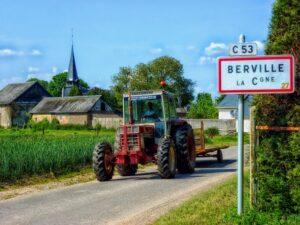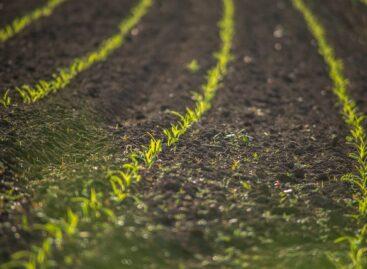Farmers are also protesting in the south-western part of France, the government has invited their representatives to negotiate
The most important French agricultural organization, FNSEA, announced on Monday evening that the traffic-slowing actions that began three days ago will continue until the farmers receive “concrete answers” to their hopeless situation. The government promised announcements during the week.

(Photo: Pixabay)
Since Thursday evening, dozens of farmers have been blocking a section of the A64 highway in the southwest, and dozens of protesters have also occupied the lanes of the A9 highway in the south. “We need very concrete steps, that’s why we told the prime minister that until there are concrete decisions (…) we will not dissolve the actions at the locations,” declared Arnaud Rousseau, president of the FNSEA, on Monday evening after meeting with Prime Minister Gabriel Attal. He added that the agricultural society “will not be satisfied with minor measures”. Agriculture Minister Marc Fesneau said after the meeting: “the prime minister has made clear his intention to make a number of initial announcements quickly this week.”
The government is not secretly afraid that a nationwide protest will develop, similar to the farmers’ demonstrations in Germany, the Netherlands, Britain or Romania
According to police sources, only a few hundred farmers are protesting in France for the time being, but “if the authorities do not provide answers, the actions can be expected to become radicalized”. According to a source quoted by the AFP news agency, the farmer’s demonstration is popular among the population because the protesters “have not made any mistakes” so far, but instead “made free passage through the highway gates” and “neutralized the speed cameras”. “For us, the real crisis is the price of agricultural products and the low income,” Laurence Marandiere, a spokesman for the farmers’ organization Confédération paysanne, told AFP, blaming “the policy that has been applied for decades, ultra-liberalism” for the downfall of farmers, which he says is mutually exclusive. caused by collusion between successive governments and the FNSEA. In recent years, FNSEA, the largest agricultural producers’ union, has reached several agreements with the government, for example on taxes on water or pesticides. According to the agriculture minister, the most pressing issues at the moment include trade negotiations with industrial producers and large retail chains in order to pay producers better, “crises affecting many sectors” and requests to simplify administrative tasks. In addition, the protesting farmers demand that there be no more bans on plant protection products, that the increase in fuel prices for tractors be stopped, and that compensation be made faster after natural disasters.
Interior Minister Gérald Darmanin indicated that “the law enforcement forces (for now) do not plan to dismantle the blockades, because no vandalism has occurred”
The government is trying to act cautiously towards the farmers in order to avoid another social protest. The previous prime minister, Élisabeth Borne, announced in December that she would back off raising taxes on pesticides and irrigation, which drew the ire of environmental and water organizations. In France, the sector also takes a bad name from the fact that the draft law on agriculture, promised by President Emmanuel Macron more than a year ago, was repeatedly postponed, the purpose of which would be to encourage a generational change, after the agricultural population of half a million farmers is aging.
MTI
Related news
Agricultural vocational training also places great emphasis on irrigation development
🎧 Hallgasd a cikket: Lejátszás Szünet Folytatás Leállítás Nyelv: Auto…
Read more >Related news
40 secure jobs, sustainable solutions – new BURGER KING® in Csepel
🎧 Hallgasd a cikket: Lejátszás Szünet Folytatás Leállítás Nyelv: Auto…
Read more >(HU) METRO Gasztro Fesztivál a SIRHA Budapesten – Élmény, inspiráció és valódi megoldások a HoReCa-szakmának
🎧 Hallgasd a cikket: Lejátszás Szünet Folytatás Leállítás Nyelv: Auto…
Read more >








